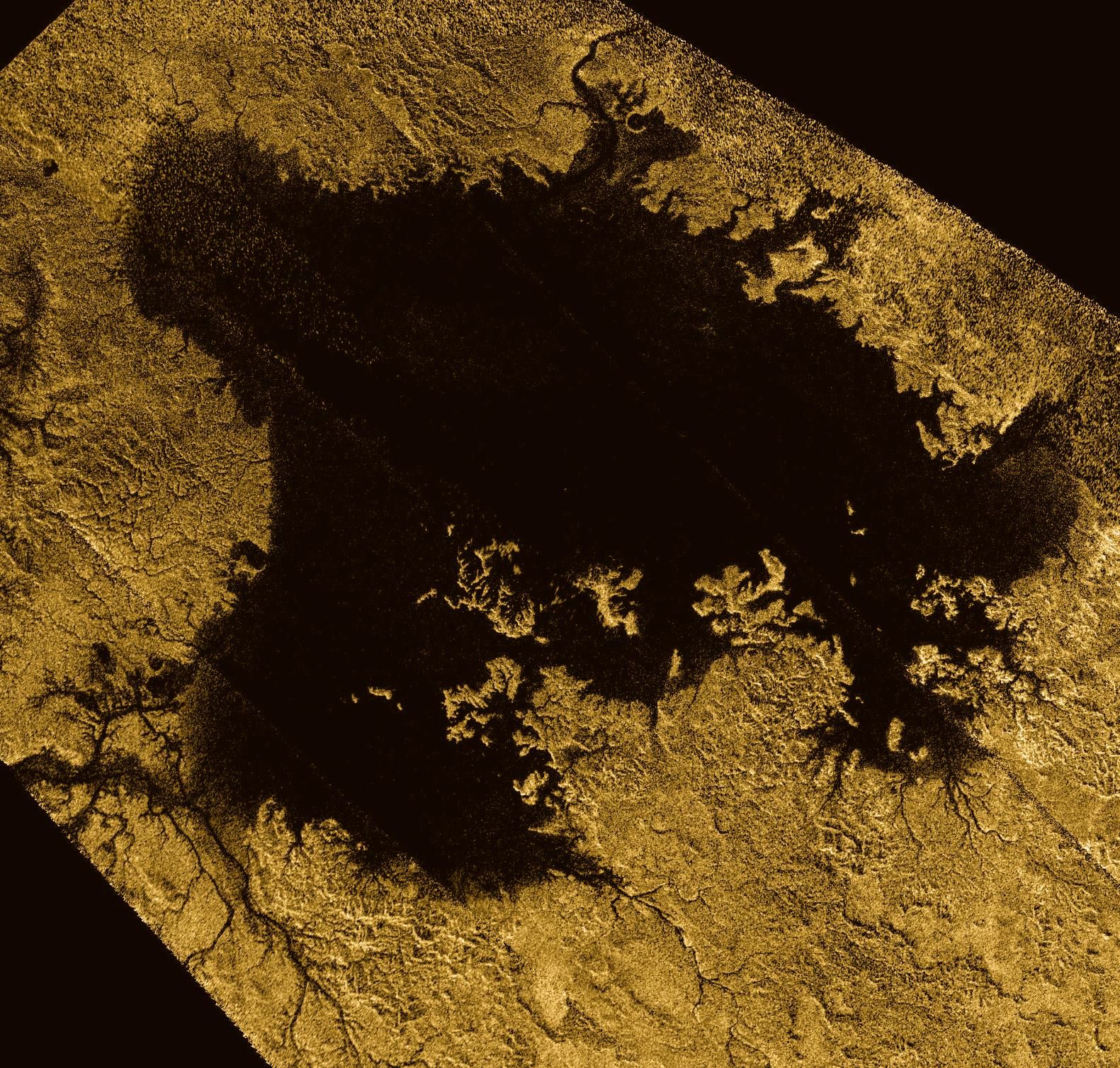
An alien looking out at its neighborhood on Saturn's moon Titan may see scenery surprisingly reminiscent of beautiful vistas here on Earth, according to two recent papers published in the journal Geophysical Research Letters. Together, these two papers give us the best sense of Titan's surface to date, informed by some of the last data scientists received from the Cassini spacecraft that orbited Saturn until its destruction in September.
The new research will help scientists better understand one of the moons of our solar system that may host just the right conditions for life—and that NASA is considering visiting during the mid 2020s. Knowing more about Titan's surface can also teach scientists about the moon's structure deep below.
Getting a handle on Titan's surface isn't just a matter of looking at some perfect aerial footage. Scientists pieced together three different types of radar measurements made by sending radio waves through the moon's super-thick atmosphere. Those waves—bounced off the surface of Titan and echoed back to the spacecraft—provided the data for this groundbreaking glimpse.
Less than a tenth of the moon's surface has been studied in high resolution, so researchers also had to meld together data of different quality. Even still, there are holes in the map, spots the spacecraft didn't cover. For these, the scientists used a computer program to create estimates, a process documented in the first paper. The result is the best map to date, highlighting "mountains" about 2,000 feet tall (for comparison, Mount Washington is about 6,300 feet tall).
The second paper focuses on the lakes and seas on Titan, which are filled with liquid hydrocarbons like methane. The authors found that just like on Earth, seas all sit at the same height. In other words, there's a global sea level on Titan, which means that they may all be connected. If methane rains down on one sea but not the other, it flows between the seas to balance out. Or it could be that the liquid can seep through Titan's surface layer, creating a steady sea level even through small local barriers.
Read more: Saturn's Rings Are Made Of a Shredded Moon, Cassini Findings Suggest
But beyond those seas, there are small lakes nestled between mountains. Just like mountain lakes on Earth, these can have higher water levels than the interconnected seas. Within geographic pockets, these lakes tend to form a steady level, which might signal a sort of local "water table" as liquid percolates through the moon's surface.
There the similarity ends. Unlike terrestrial lakes that often have sloping shorelines, these lakes have tall, steep sides that "literally look like you took a cookie cutter and cut out holes in Titan's surface," co-author Alexander Hayes, a planetary scientist at Cornell University, said in a press release. That shape suggests that the lakes were formed by what scientists call "uniform scarp retreat," in which whole stacks of rock are eroded away to form cliffs. The team isn't positive yet of how the details play out.
If Titan does host aliens enjoying its scenery, they likely wouldn't look anything like us, precisely because of those lakes. On Titan, the special role that water plays in supporting life on Earth would have to be filled by methane instead.
Uncommon Knowledge
Newsweek is committed to challenging conventional wisdom and finding connections in the search for common ground.
Newsweek is committed to challenging conventional wisdom and finding connections in the search for common ground.
About the writer
Meghan Bartels is a science journalist based in New York City who covers the science happening on the surface of ... Read more
To read how Newsweek uses AI as a newsroom tool, Click here.








